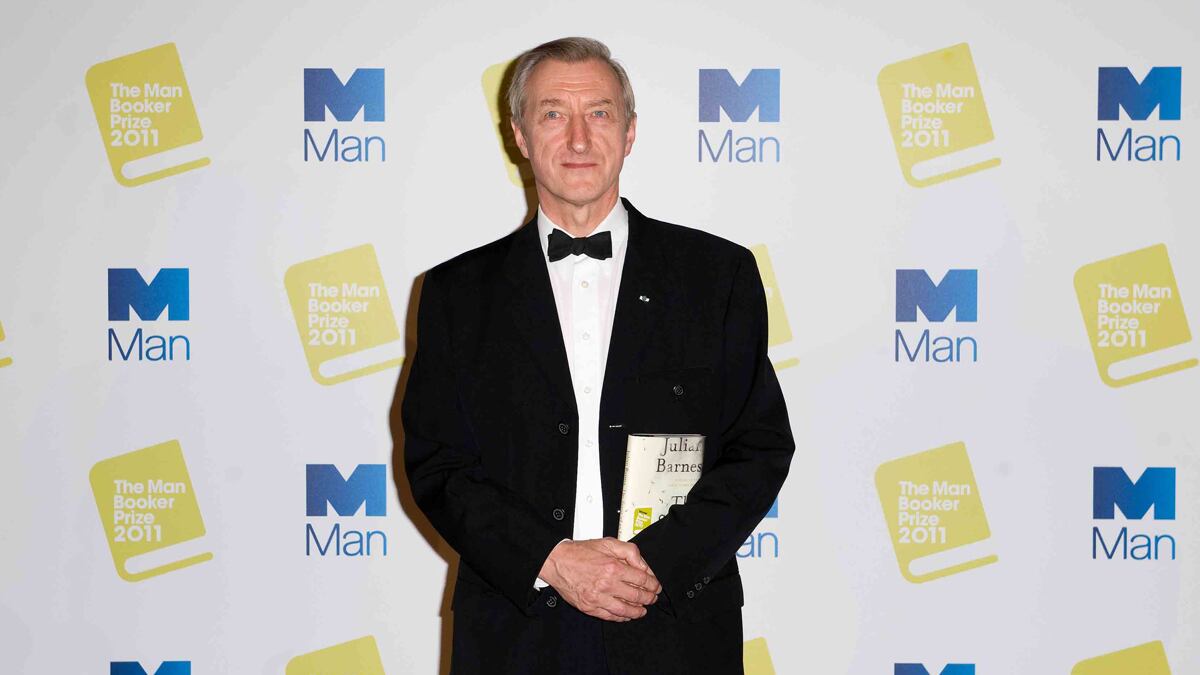The Danish philosopher Søren Kierkegaard wrote in his journals of 1843, “It is quite true what philosophy says; that life must be understood backwards. But then one forgets the other principle: that it must be lived forwards.” A dilemma for us all—whether we subscribe to the youth-is-wasted-on-the-young principle or spend way too much time on the woulda, coulda, shouldas—we all wish that the wisdom that comes with time, with age, had permeated our brains and impacted our decisions sooner.
Two dazzling books, The Sense of an Ending by Julian Barnes and On Canaan’s Side by Sebastian Barry, happily landed in my hands recently and got me thinking about Kierkegaard’s statement. Each of these books is based on characters reflecting on life from the perspective of old age. Each is about the fuzziness of memory, the pain of exploring our past mistakes, and how looking back at life as a whole can give an enhanced view of what we may not be able to see clearly looking at life day by day or year by year. And each has connections to the annual Booker Prize: Barnes’s book won the 2011 Man Booker Prize for Fiction, and Barry has been shortlisted twice in the past (once for The Secret Scripture—the book that made me fall in love with his writing).
The Sense of an Ending by Julian Barnes is the story of Tony Webster, looking back on life from middle age. He reflects: “What you fail to do is look ahead, and then imagine yourself looking back from that future point. Learning the new emotions that time brings. Discovering, for example, that as the witnesses to your life diminish, there is less corroboration, and therefore less certainty, as to what you are or have been. Even if you have assiduously kept records—in words, sound, pictures—you may find that you have attended to the wrong kind of record-keeping.” The entire novel is full of such elegantly stated thoughts that get right to the heart of the human predicament Kierkegaard described in his diary. After reading along, engrossed and engaged for most of the book, I came up short at the ending, wondering what I’d missed, just as Tony wonders what he’s missed. But I happily began reading again from the beginning to connect the dots. In the end, we learn that Tony may not have been a reliable narrator—and, painful as it is, we must also consider whether we too may be unreliable narrators of our own lives.
On Canaan’s Side is a story at once both epic and intimate. This is the narrative of 17 days in the life of Lilly Bere as she mourns the loss of her grandson and reflects back on the tragedies of her life, from the end of the First World War when she was forced to flee Ireland, and through the Great Depression, World War II, and the Vietnam War. You’d think that nearly seven decades of heartbreak and tragedy would be just too much for any person to bear—yet happiness shines through even the bleakest, darkest parts of Lilly’s narrative. As she considers the people who have touched her and whose lives she has touched, she realizes the beauty of life and the limitless human capacity for hope.

And that’s the lesson here. Kierkegaard is right: we are cursed to understand life only backwards while living it forwards. But there’s also hope. And that’s where reading comes in. I always say that the purpose of reading is to be transported to another place or time, to be able to live in another person’s shoes, to see worlds we otherwise wouldn’t have the opportunity to see. But what all of these things really boil down to is the REAL purpose of reading: to learn how to live life more fully and in the best way possible. And I can’t think of any two books that teach that lesson better.
I was thrilled to hear Julian Barnes’s name when the winner of the Man Booker Prize was announced today. I have to admit I haven’t read all of the other finalists, surely worthy competitors, but I loved The Sense of an Ending too much not to be pleased.






